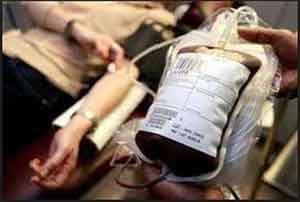- Home
- Editorial
- News
- Practice Guidelines
- Anesthesiology Guidelines
- Cancer Guidelines
- Cardiac Sciences Guidelines
- Critical Care Guidelines
- Dentistry Guidelines
- Dermatology Guidelines
- Diabetes and Endo Guidelines
- Diagnostics Guidelines
- ENT Guidelines
- Featured Practice Guidelines
- Gastroenterology Guidelines
- Geriatrics Guidelines
- Medicine Guidelines
- Nephrology Guidelines
- Neurosciences Guidelines
- Obs and Gynae Guidelines
- Ophthalmology Guidelines
- Orthopaedics Guidelines
- Paediatrics Guidelines
- Psychiatry Guidelines
- Pulmonology Guidelines
- Radiology Guidelines
- Surgery Guidelines
- Urology Guidelines
ASCO's Updated Platelet Transfusion Guidelines for Cancer Patients

American Society of Clinical Oncology (ASCO)has released its updated Guidelines for the use of platelet transfusions in patients with cancer.According to an update to clinical practice guidelines from the American Society of Clinical Oncology (ASCO),Adult patients undergoing hematopoietic cell transplantation (HCT) can safely delay platelet transfusion until the first sign of bleeding. This recommendation is “the most substantial change” to previous guidelines published in 2001, which recommended prophylactic platelet transfusions for this patient population,according to authors.The updated guidelines have been published in The Journal of Clinical Oncology.
ASCO convened an expert panel to review 11 clinical questions related to the preparation, prophylactic use, and appropriate thresholds for the use of platelet transfusions in patients with cancer to create the new guidelines. They panel reviewed medical literature published from September 1, 2014, through October 26, 2016, and built on two 2015 systematic reviews that were conducted by AABB and the International Collaboration for Transfusion Medicine Guidelines.
“The [2001] guideline recognized the important role of platelet transfusion in the prevention and treatment of bleeding in patients with treatment-related thrombocytopenia, but also sought to avoid the overuse of platelet transfusions by identifying patients who are most likely to benefit,” the authors wrote of their recommendations, which were “The expense of platelet transfusions, coupled with potential [adverse events (AEs)], such as febrile and allergic reactions, transfusion-related acute lung injury, and bacterial contamination, point to the importance of evidence-based transfusion practice.”
Key Recommendations are as folows :
- Adult patients undergoing hematopoietic cell transplantation (HCT) can safely delay platelet transfusion until the first sign of bleeding however prophylactic platelet transfusion at defined platelet count thresholds is still recommended for children undergoing autologous HCT and patients undergoing allogeneic HCT (alloHCT).
- Prevention of Rh alloimmunization: This can be achieved through the exclusive use of platelet products collected from RhD-negative donors or via anti-D immunoprophylaxis (evidence quality: intermediate; strength of recommendation: moderate)
- Leukoreduction: It is appropriate to provide leuko-reduced blood products to patients with acute myeloid leukemia (AML) receiving induction therapy to reduce the risk of alloantibody-mediated refractoriness to platelet transfusion (evidence quality: high; strength of recommendation: strong)
- Platelet transfusion threshold in patients with solid tumors: The panel recommends a threshold of <10×109/L for prophylactic platelet transfusion to minimize the risk of bleeding from chemotherapy-induced thrombocytopenia in patients with solid tumors (evidence quality: low; strength of recommendation: moderate)
- Monitoring for refractoriness to platelet transfusion: Platelet counts performed 10-60 minutes after transfusion should be obtained after all transfusions when refractoriness is suspected, although there are no empirical data to suggest that monitoring and acting on the post–platelet-transfusion count decreases the incidence of hemorrhagic events (evidence quality: insufficient; strength of recommendation: moderate)
Source: Schiffer CA, Bohlke K, Delaney M, et al. Platelet transfusion for patients with cancer: American Society of Clinical Oncology clinical practice guideline update. J Clin Oncol. 2018;36:283-99.

Disclaimer: This site is primarily intended for healthcare professionals. Any content/information on this website does not replace the advice of medical and/or health professionals and should not be construed as medical/diagnostic advice/endorsement or prescription. Use of this site is subject to our terms of use, privacy policy, advertisement policy. © 2020 Minerva Medical Treatment Pvt Ltd